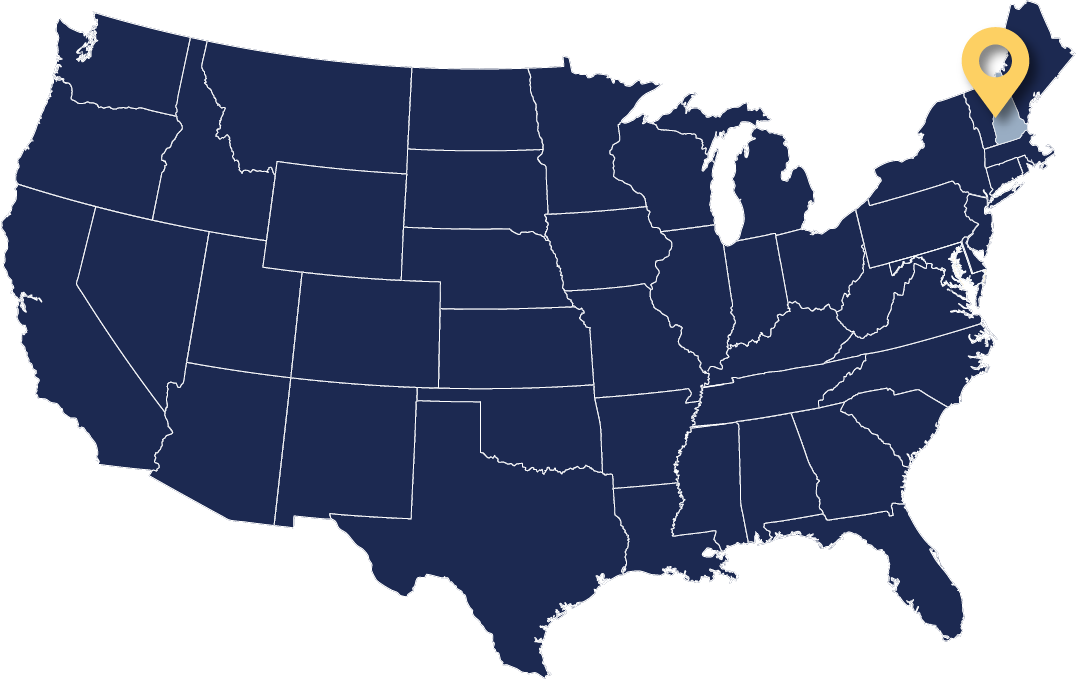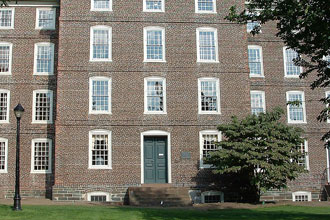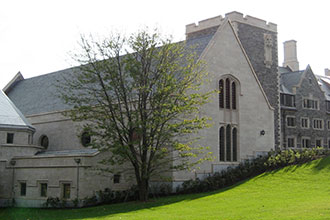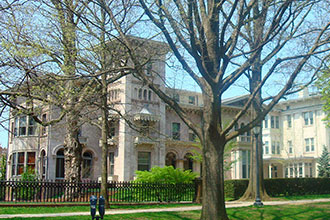DARTMOUTH COLLEGE
REQUIREMENTS AND CAMPUS GUIDE
School Name: Dartmouth College
School Location: Hanover, NH
School Type: Private Ivy League Liberal Arts
Category: High Reach
Dartmouth College Admissions Rates for Class of 2026
Applications: 28,336
Admitted: 6.24%

General Info
SAT/ACT Score
Test Optional for 2021-2022
Admission Cycle
Fall 2020 Test Scores
Math: 730-790
ERW: 710-770
ACT: 32-35
Dates/Deadlines
Early Decision: November 1
Early Results: Mid-December
Regular Deadline: January 2
Regular Results: Late March or Early April
School Information
Schedule: Quarter System
Curriculum Type: General Education
Greek Life: Yes
Athletics: DI
DARTMOUTH TIPS & GUIDE
– Alex, Class of 2019
Dartmouth Application Requirements, Admissions Tips, and University Guide
Wait, What’s It Called Again? Dart-MOUTH?
Dartmouth (DART-muth) College is the smallest of the Ivy League schools. Its founder, Reverend Eleazar Wheelock, established the College in rural Hanover, New Hampshire in 1769 as an institution to educate Native Americans. Like all Ivy League schools, Dartmouth has a long and distinguished reputation for educational excellence, and the College offers a broad range of educational options with traditionally strong areas in business, engineering, medicine, and liberal arts studies. The most popular undergraduate majors are economics, government, computer science, and engineering, but a liberal arts emphasis ensures that students have the opportunity to take courses from a variety of departments.
Ok, I’m Intrigued. So How Do I Apply to Dartmouth?
Dartmouth has one streamlined application process, as it only accepts the Common Application. A complete application for admission must include the following components:
- A completed Dartmouth Writing Supplement including personal essays
- A high school report (official transcript, school or class profile, and counselor evaluation)
- Two letters of recommendation
SAT or ACT scores (test optional for 2022-2023 admissions cycle) - $80 application fee or fee waiver
- Test of English as a Foreign Language (TOEFL) score unless English is your first language or the language of instruction at your current school.
Dartmouth’s admissions committee uniquely asks each student to submit a peer recommendation as part of their application. Peer recommendations provide the committee an additional perspective on each applicant as a friend, peer, and community member. This written statement endorsing the applicant’s candidacy should be completed by someone who knows the candidate well and is within a few years of their age; it should not be completed by someone who has a supervisory or oversight role in the applicant’s life. Examples include:
- a classmate or teammate;
- a brother, sister, or cousin;
- a co-worker;
- friend met at summer school or summer camp; or
- a lab or debate partner
What are Dartmouth’s Acceptance Rates?
Dartmouth College is a highly selective institution; the current acceptance rate for the Class of 2026 was 6.24%. Dartmouth offered admission to 1,767 students, selected from a pool of about 28,336 applicants.
Dartmouth accepts students who score in the top percentiles on standardized tests. The mean ACT score for the class of 2025 was 33, with a mid 50% range of 32-35. The mean SAT Score for the class of 2025 was a 733 on the Critical Reading EBRW section and a 750 on the SAT Math section. The mid 50% range was 730-790 on the math section and 710-770 on the Critical Reading EBRW section.
Dartmouth accepts a large part of its incoming class through the early decision application process. Applying early can increase a student’s chance of admission, as Dartmouth enrolled about one third of its class of 2026 during the early acceptance round. In the most recent cycle, 21% percent of applicants who applied through the early decision program were accepted. Early decision benefits both the school and the applicant. Early decision acceptances are binding, allowing the school to hand-pick a portion of their incoming class, rather than extending an offer of admission that may not be accepted by the student in the end, as is sometimes the case through early action applications. Dartmouth does not offer an early action option.
That Seems Daunting…How Do I Make My Application Stand Out?
Authenticity is essential to helping the admissions committee discover the attributes, talents, and ambitions that they seek in applications. The Dartmouth admissions standards are rigorous; they wish to see academic achievement, community involvement, and the potential for students to contribute both academically and extracurricularly.
The Common Application forms alone may not adequately reveal a student’s overall personality and levels of community engagement. Therefore, applicants should demonstrate their contributions to their communities through personal essays, descriptions of extracurricular activities, and qualified recommendations. Other tips for the process include:
- Don’t Wait to Apply – The application must be submitted by the submission deadline, but more importantly, the quality of the writing and information you provide must be top-notch. Students can disadvantage themselves by waiting until the deadline draws near to thoroughly assess and describe their overall strengths in their academic, extracurricular, and community pursuits.
- Emphasize Community Engagement – Successful applicants demonstrate their historical willingness and ability to contribute to their communities in positive ways. Dartmouth weighs community contributions strongly in its admission decisions, as they seek to admit students who are more likely to engage with campus life.
- Use the Early Decision Advantage (If It’s Your Top Choice!) – Dartmouth is a selective institution, and students are generally incredibly motivated and thrilled to attend. Dartmouth often selects a third of its incoming class through binding early decision commitments, and the acceptance rate for early applicants is higher than the regular decision round (keep in mind that the applicant pool is also generally stronger and includes recruited athletes committed to the school).
I’ll Do My Best – What’s So Special About the School Anyway?
You’ll likely begin your freshman year by joining over 90 percent of your class on one of the Outing Club’s First Year Trips. Dartmouth’s bucolic setting in the Upper Valley on the Connecticut River with hiking trails galore provides the perfect setting for new students to bond with their “trippies,” who they’ll almost certainly keep in touch with over their four years. Outdoor recreation doesn’t stop after freshman fall, as students can be shuttled hourly to the Dartmouth Skiway during the winter term or participate in “The Fifty,” a 54-mile hike from the famous Moosilauke Ravine Lodge back to campus, during the summer and fall. Famished from all that hiking? Hanover’s local eateries provide highly-rated and diverse culinary offerings, from Thai and tapas to Irish and Indian.
While there are innumerable things to see and do off-campus, just wait until you hear about the activities on-campus. Dartmouth has a wide-ranging selection of clubs, intramurals, performance groups, and publications from which you can choose. Have a business or app idea that you want to pursue? The Magnuson Center for Entrepreneurship guides students through the process of creating their own business, and the DALI Lab offers a working environment where participants develop technology to serve real-world clients. Socially, Dartmouth students bleed green and can find ways to get excited for any occasion. The major events each term are the Homecoming bonfire in the fall, Winter Carnival festivities (you got it – in the winter), and the Green Key concert in the spring. Greek Life is also a major way students connect on campus, as roughly two-thirds of students are affiliated with one of the many fraternities, sororities, or co-ed houses. These houses aren’t your typical Greek houses either – given the vast inclusion of members from all walks of campus life, each house maintains an open-door policy, meaning that any undergraduate with a Dartmouth ID can join the fun on any given night. Overwhelmed by the sheer amount of ways to get involved on campus? No worries – head over to Sanborn to take a breather and enjoy free tea and cookies any weekday from 4 to 5 pm.
Fancy yourself to be a future President of the United States? Dartmouth would appreciate you becoming the first alumnus to achieve that title, but until then, you can settle for bumping shoulders with presidential candidates at least once during your four years of undergraduate study. As a battleground state in the U.S. political system, New Hampshire becomes the hottest destination for presidential hopefuls every four years, and Dartmouth gets a front row seat to the action. If you want to get off the sidelines and into the political game, Dartmouth’s Rockefeller Center for Public Policy, affectionately known as “Rocky,” offers the Policy Research Shop, which engages students in non-partisan research that is shared with Vermont and New Hampshire legislative committees, statewide commissions, and executive agencies. The action can even start your freshman year, as the Rocky First-Year Fellows program invites select students down to Washington, D.C. for placements in exciting internship programs at a variety of political agencies and organizations.
Now, it’s time to hit the books. Dartmouth’s configuration as a liberal arts college with vast research engagements offers the perfect balance of opportunities for each student to pursue their academic passions. Do you crave the intimacy of small class sizes so that you can actually get to know your professors? Dartmouth has you covered – not only do the majority of classes have fewer than 20 students, but the Undergraduate Deans Office will even pay for you and your favorite professor to get a meal on campus or in town! Don’t just take our word for it – listen to U.S. News and World Report, who consistently ranks Dartmouth highly in its “Best Undergraduate Teaching” list, citing the fact that faculty and administrators are committed to teaching undergraduate students rather than solely focusing on their own research projects. Speaking of research, Dartmouth makes finding opportunities with professors easy – just check out the Undergraduate Advising and Research office’s centralized database of available research positions or apply to the Presidential Scholars program that provides part-time, paid research assistantships to high-achieving students.
Dartmouth – always finding ways to be unique – offers a quarter system, which increases the number of classes you can take during your 10-week terms. But, this is not just your average quarter system. Dartmouth offers the D-Plan, which stipulates the following: freshman and seniors stay on campus, sophomores take classes during the summer, the rest is up to you. Whoa, whoa, whoa…TIME OUT! Class in the summer? Yes! Sophomore Summer is one of the most exciting times of a Dartmouth student’s career, as students stay in Hanover with their entire class in what is unofficially known as “Camp Dartmouth.” What are the advantages of that? I’ll tell you:
- The weather – the snow has finally melted.
- Farmer’s markets and sunbathing on the Green.
- Even SMALLER class sizes – who would have thought that’s even possible?
- Trips to the Organic Farm for pizza, the Connecticut River docks for swimming, or even Ice Cream Fore-U in West Lebanon for sweet treats and mini golf!
- Remember those performance groups mentioned above? Well, the show must go on…even in the summer! If you’re a shower singer or have been hiding your inner dancing queen, sophomores already in a cappella, dance, or improve groups look to fill their ranks with their peers, so this is your time to shine!
Further, when you complete that summer requirement, you’re freed up to take a term off during a non-traditional time in the academic year. This sets you up to be at the top of the list for internship opportunities while kids from other schools are stuck in class. Students can take this time to conduct research on- or off-campus, take advantage of the many study abroad opportunities, or find the perfect internship through Dartmouth’s Center for Professional Development.
Need I say more?
How affordable is Dartmouth?
Dartmouth aims to make financing your education stress-free, which is why they meet 100 percent of demonstrated financial need for both domestic and international students. As of summer 2022, Dartmouth transitioned to a no-loan financial aid policy, making the college one of six U.S. institutions of higher education to offer need-blind admissions to all undergraduate applicants while meeting 100% of demonstrated need regardless of citizenship. Along with their college application, students intending to request financial support should submit the FAFSA, CSS Profile, and IDOC by the same deadline as the one set for their intended application cycle. Beyond the sticker price cost of attendance, here’s some additional context about financing your education that will likely put your mind at ease:
- 63% of accepted students to the Class of 2026 qualify for need-based financial aid.
- The estimated average scholarship for the Class of 2026 is $61,000.
- Families with total incomes of $125,000 or less are guaranteed a scholarship for their student that will at least cover the full cost of tuition.
To get a sense of how much you can expect your Dartmouth education to cost, you can use the financial aid office’s cost estimator here.
That Takes Some Pressure Off, But I Definitely Still Want a Job After Graduation. What Should I Expect from the Job Search Process?
Dartmouth undergraduate degree holders have excellent career prospects, as Dartmouth graduates rank high in employment, salary, and job satisfaction across the board. A high percentage of students earn degrees in science, technology, engineering and mathematics, which makes innovative companies eager to recruit Dartmouth students to fill their lucrative job openings. Dartmouth alumni also tend to have exceptional success rates as compared to peers from other institutions when applying to top-ranked business, law, or medical schools.
Further, ranked #1 in the Forbes Grateful Grads Index, Dartmouth alumni are heavily engaged with the school even after graduation and are more than eager to help current students and soon-to-be graduates. Dartmouth’s tight-knit alumni network of 80,000 active alumni includes Nobel laureates, judges, scientists, scholars, government leaders, and more. Some notable alumni of the College include Theodor Geisel (Dr. Seuss), current U.S. Senator Kristen Gillibrand, and K. Barry Sharpless, winner of the Nobel Prize in Chemistry…and hopefully you one day!
View Sources
- https://home.dartmouth.edu/news/2022/03/diverse-undergraduate-class-2026-takes-shape#:~:text=The%20acceptance%20rate%20for%20the,cycle%20in%20the%20College’s%20history
- https://admissions.dartmouth.edu/apply/class-profile-testing
- https://www.thedartmouth.com/article/2021/12/560-students-admitted-early-to-dartmouth-class-of-2026
- https://calltolead.dartmouth.edu/stories/dartmouth-eliminates-student-loans-undergraduates
- https://www.forbes.com/sites/annacorradi/2019/08/15/grateful-grads-2019-follow-alumni-love-and-money-into-the-best-colleges/?sh=40507c7f6ca2
- https://admissions.dartmouth.edu/about/alumni-outcomes
- https://admissions.dartmouth.edu/afford/cost-attendance
- https://admissions.dartmouth.edu/apply/apply-dartmouth
- https://financialaid.dartmouth.edu/
- https://home.dartmouth.edu/life-community/explore-green/history-traditions
- https://www.thedartmouth.com/article/2022/04/1767-applicants-admitted-into-class-of-2026-with-second-lowest-acceptance-rate-ever
Dartmouth Admission Rates
| | Data Source | Admission Rate |
|---|---|---|
| Class of 2025 | CDS 2021-2022 | 6.17% |
| Class of 2024 | CDS 2020-2021 | 9.22% |
| Class of 2023 | CDS 2019-2020 | 7.93% |
| Class of 2022 | CDS 2018-2019 | 8.73% |
| Class of 2021 | CDS 2017-2018 | 10.44% |
MORE SCHOOLS TO CONSIDER

Brown University
Providence, RI

Princeton University
Princeton, NJ

Yale University
New Haven, CT
View All Schools ↓
| American Univ Amherst Brown Boston Univ CalTech Carnegie Melon Claremont McKenna Columbia Cornell Dartmouth Duke Emory Georgetown Georgia Tech Harvard Hopkins |
MIT NYU Northeastern Northwestern Notre Dame Princeton Rice Stanford Tufts Tulane UChicago UC Berkeley UC Davis UCLA |
UCSB UCSD UIUC UMich UNC UPenn Univ of Southern California UT Austin UVA Vanderbilt Villanova WashU Williams Wisconsin Yale |
*Updated 2022
